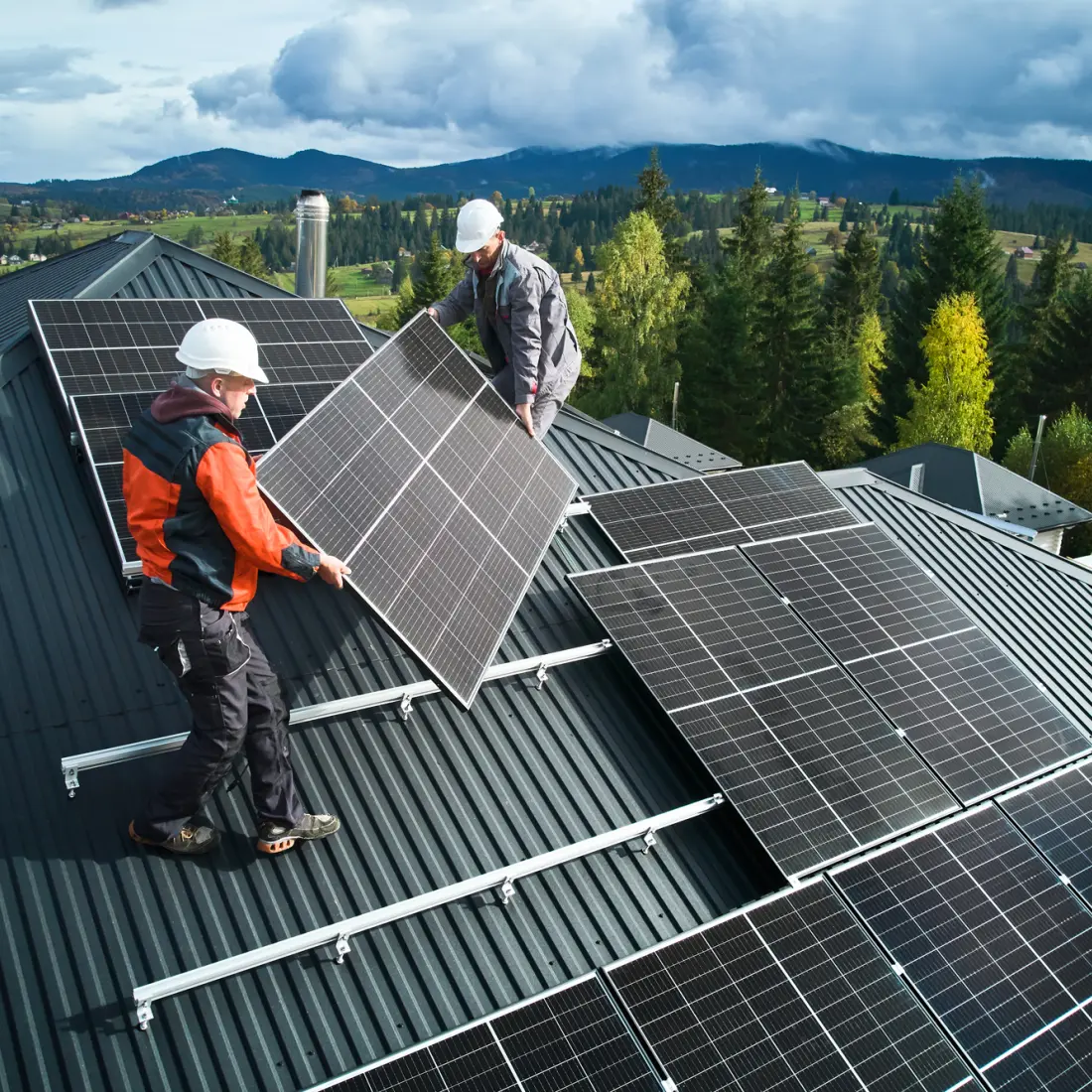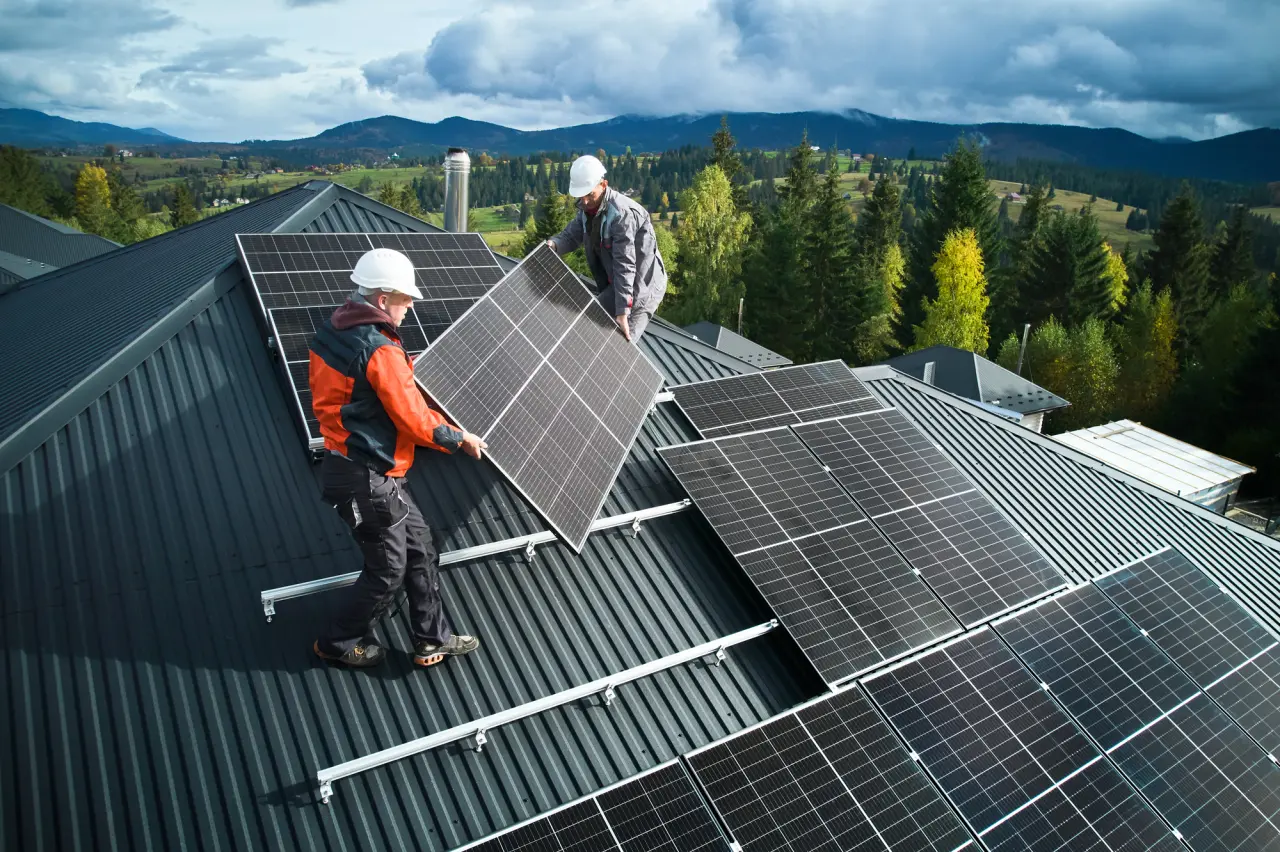Home businesses that can significantly benefit from private solar power


Solar power is quickly becoming the energy option of choice in residential neighborhoods. At an average annual growth rate of 24%, solar energy has seen a steady increase in popularity across North America. Prices for residential solar power have also dropped 36% over the past five years, making renewable energy more affordable than ever before.
As solar power becomes more attainable for the masses, more people are realizing the benefits of harnessing private solar power for business operations. This includes entrepreneurs who work out of their own homes, relying on household utilities for daily operations. If you are a home business owner, installing solar power could help your business become more efficient, more sustainable and even more successful in certain ways.
Advantages of residential solar for a home business
Solar panels can save you an estimated $1,500 per year on your energy bill, depending on local pricing and the type of solar panels you use. You can also receive tax incentives like the Residential Clean Energy Credit, which saves you as much as 30% on the cost of a new solar energy system. Investing in solar panels helps keep your business resilient to electricity price increases, thereby improving certainty in your operations.
Beyond these financial benefits, solar power represents your commitment to sustainable energy. It provides reliable power without the use of fossil fuels, a sustainable business practice that can greatly improve your company’s reputation. Your business will also earn at least partial independence from the electrical grid, keeping your lights on even when power goes out.
Energy-intensive home businesses that can save with solar
The average household spends more than $130 per month on electricity, at an average rate of 23 cents per kilowatt-hour. You might pay even more if you’re also using home energy to run your business. Let’s look at a couple of examples of home businesses that use quite a bit of power and may benefit from switching to solar power.
Media production or photography studio
Media production studios, particularly those involved in live video or photography, will require extensive amounts of power. Electricity demands might include studio lights, workstations for editing or graphic design, onsite data servers and A/C systems that prevent technology from overheating.
Solar power can provide an immediate savings opportunity for these kinds of studios. Solar cells and batteries can greatly reduce your energy bill, given the constant demand for power within the studio. They also make your studio eco-friendly, a major selling point for potential clients, partners or employers.
Growing plants for sale
You can make a great living growing and selling plants. While some businesses grow generally popular herbs and vegetables, others specialize in specific plants. For example, you might choose to grow a rare truffle or an exotic type of houseplant.
You’ll need reliable heating and lighting if you’re growing plants to sell — especially if you live in a colder climate. Your geographic location influences how much light and heat your plants require to grow. Succulents, orchids and some cacti require a large dose of daily light, making constant power even more important to supply artificial lighting.
Beyond the cost-saving benefits of renewable energy, solar cells can also help protect the reliability of your power. If the electricity goes out in your neighborhood, your lamps, watering systems and heating will all go out. With functional solar power, lights and lamps can stay on even when the grid goes down.
3D printing studio
With a home 3D printing studio, you can create a virtually endless variety of items from a specialized printer. You might make toys, promotional products, tools or educational materials from home. Some 3D printing companies even make replacement parts for common machinery.
No matter what you create with a 3D printer, you’ll need a considerable amount of power. 3D printers create items slice by slice, adding layers until the item is completely created. This process can take time as the machine layers materials. You’ll also need power to create the initial 3D model, typically through a computer program made for the printer.
Solar power can help directly offset power-related costs. Solar cells generate electricity during the day that can completely power a 3D printer, even one running for an extended period of time while printing a large item. Over time, the initial cost of solar cell installation is completely offset by monthly savings from the solar energy itself.

Mining cryptocurrency
Cryptocurrency — a digital form of money found through encryption algorithms — is quickly becoming a mainstream form of currency. Although you can mine crypto from home, the process isn’t without its challenges.
Most notably, mining popular forms of cryptocurrency like Bitcoin is difficult because of the sheer computing power you’ll need. You’ll also need to keep those computers running for extended periods of time. High electricity costs, cooling costs and environmental consequences of cryptocurrency prevent many people on a traditional electrical grid from mining crypto.
Solar energy can solve many of these problems. With lower electrical costs and decreased dependence on the local grid, you can keep hardware running without running up your bill. And since solar energy is clean energy, you can mine crypto without the same negative effects on the environment.
Baking or catering
A home food business operates on a simple premise: if you can bake it or cook it, you can sell it. Many home cooking businesses sell a variety of different dishes, baked goods or condiments. Others prepare food specifically to cater to local events.
No matter what food items you choose to cook or bake, you’ll need power for virtually every stage of the process. Kitchen equipment like ovens, mixers and food processors need power. Refrigerators and freezers need power. Sinks and dishwashers need power. These power-related costs can quickly add up — even if you save money by cooking in batches.
Solar power can generate the electricity you need for your kitchen equipment, without creating a nauseating electric bill. Despite heavy appliance usage, you can keep utility costs low with the right solar cells.
E-commerce fulfillment
Running a complete E-commerce business from your home is an energy-intensive process. You’ll need at least one computer to handle customer support, maintain your website and store buyer data. Printing shipping labels, marketing your company and storing inventory at your house can also use a great deal of power.
Administrative tasks and order processing typically take place in a home office — one of several spaces that can benefit from solar energy. Solar energy can also help you control costs for any high-powered data servers.
Tips for installing an efficient home solar system
No matter the type of home business you operate, you should find the right contractor if you’re thinking about installing solar power. Look for a contractor with favorable reviews and known for ethical solar installation practices. A contractor with experience in both residential and commercial solar projects might be best, as they will have the unique perspective to balance the needs of your household and your business.
A solar contractor will be able to explain just how much your solar panels will cost, how solar will impact your utility bills, and the rate of return you can expect to get. They can do this with specialized rooftop solar design software, factoring in all the variables unique to your home and making intelligent projections based on the data.
A reputable contractor can also help you take advantage of grants or tax breaks available for solar in your area, making sure you get all the incentives you are entitled to and maximizing your return on investment in solar power.